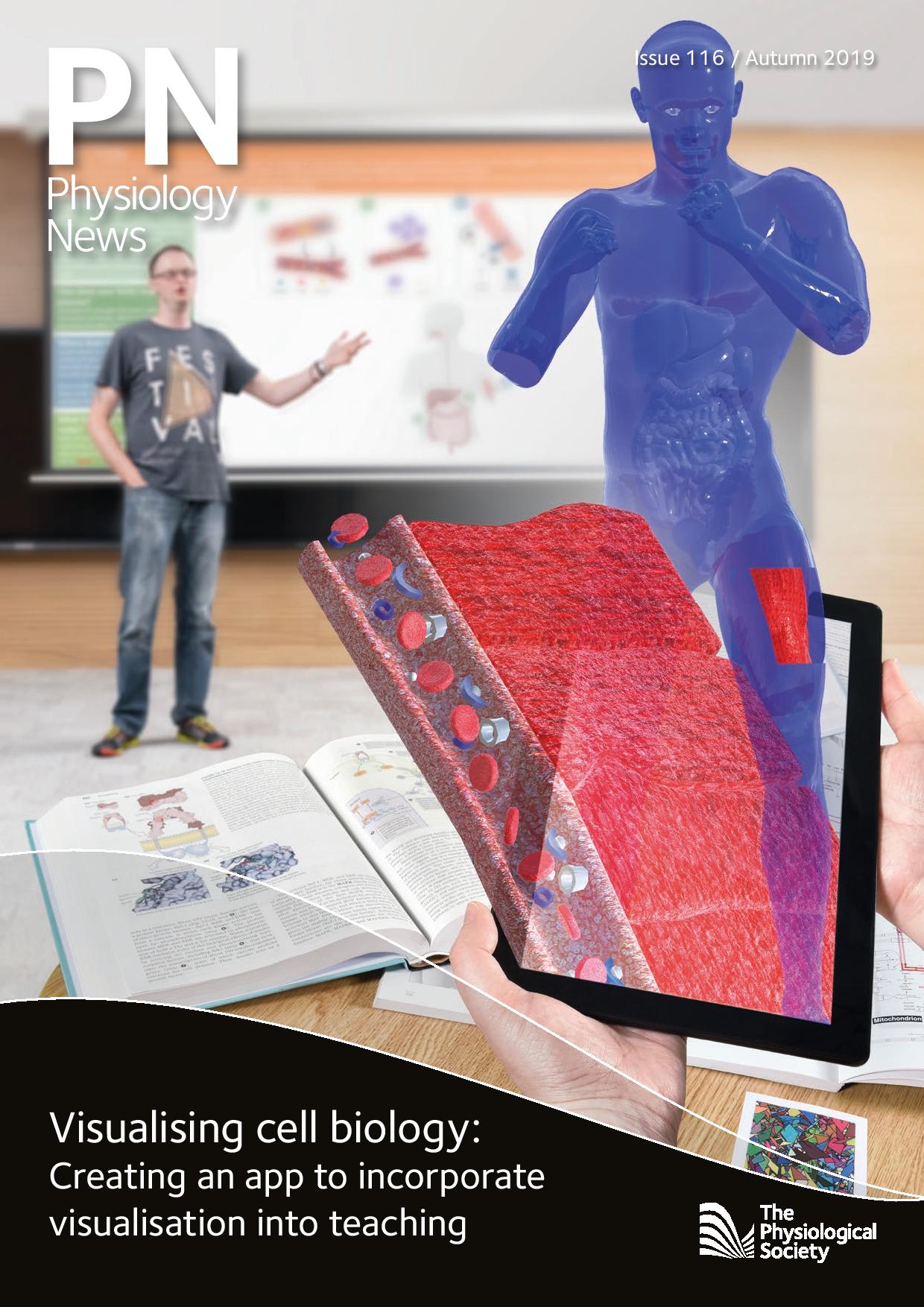
Physiology News Magazine
Future Physiology 2019: Uniting early career researchers
Events
Future Physiology 2019: Uniting early career researchers
Events
Katie Hesketh & Mark Viggars, Liverpool John Moores University, Liverpool, UK
https://doi.org/10.36866/pn.116.20
17 – 18 December 2019, Liverpool John Moores University, Liverpool, UK
physoc.org/futurephysiology2019
Whilst modern medicine has gifted us with an increase in lifespan, physiologists must strive to help meet this with an increased health span. As researchers, our minds are often constrained to our own specific niches: fixated on certain genes, signalling pathways and cell types. However, humans are complex organisms where ageing and age-related disease is often multifactorial. Developing physiologists who can collaborate and translate basic science to clinicians and policymakers to prevent, treat and intervene will be key to achieve extended health span.
Future Physiology 2019, our two-day early career conference in December, will have an overarching theme of “Translating Cellular Mechanisms into Lifelong Health Strategies” where we will aim to bridge the gap between identifying novel mechanisms behind ageing and age-related disease and designing interventions or therapeutics to delay or combat them. The conference, held at Liverpool John Moores University, will be split into four sessions over two days, including eight keynote sessions from international speakers, as well as invited oral presentations and poster sessions from early career researchers.
We will hear insights from our keynote speakers into their successes and failures in their careers and how to manage them effectively. We hope that Future Physiology 2019 will bring early career researchers with backgrounds in basic and applied sciences together to share their work, develop each other’s thinking processes and inform each other’s future practice.
The first day will begin with a session titled “Lifecourse Epidemiology, Genetics and Epigenetics” and will include a keynote from stem cell biologist Claire Stewart (Liverpool John Moores University, Liverpool, UK), the current Chair of the British Society for Research on Ageing. Claire’s talk on what ageing is, contemporary issues in an ageing society and ageing research will be followed by Robert Seaborne (Blizard Institute, Queen Mary University of London) who will discuss how exercise and nutrient stress alter the DNA methylome and the functional consequences this hypo/hyper methylation has on gene expression.
The afternoon will be focused on “Novel Mechanisms Behind Lifelong Health” starting with a keynote from Karyn Esser (University of Florida), expert on circadian rhythm in skeletal muscle. Karyn’s work on mutant mice with molecular clock defects has shown that these “clock” genes are key for skeletal muscle structure and function. Karyn Esser will discuss how her lab is using mouse and human models to design lifestyle interventions to enhance molecular clock function for muscle and whole-body homeostasis and health in ageing. Natalie Pollock will follow this session with a talk on sarcopenic motor end plate disruption and how consequently, this generates reactive oxygen species and mitochondrial dysfunction.
Whilst some crossover is expected to occur between both days, the second day will look in finer detail at translational research, starting with a morning session on “Diet, Obesity and Disease” starting with a keynote from Anton Roks (Erasmus University Medical Centre) on how a low-calorie diet prevents endothelial and smooth muscle genome instability in a mouse model of vascular ageing and how this may translate to humans. This will be followed by Lasse Gliemann (University of Copenhagen) and a talk on reduced vascular function in ageing and how high-intensity aerobic training can help prevent progression and reverse functional decline in different populations.
The final session of the meeting will be aimed around “Exercise and Lifestyle Interventions for Lifelong Health” starting with a keynote from Mats Nilsson (McMaster University) on how lifelong endurance exercise can protect against progressive systemic “inflammaging”, is protective against multiple cancer types, extends lifespan in mice and how we can promote this in society. Finally the conference will conclude with Charlotte Edwardson, on the role of physical activity and sedentary behaviour in the prevention and management of chronic diseases.
